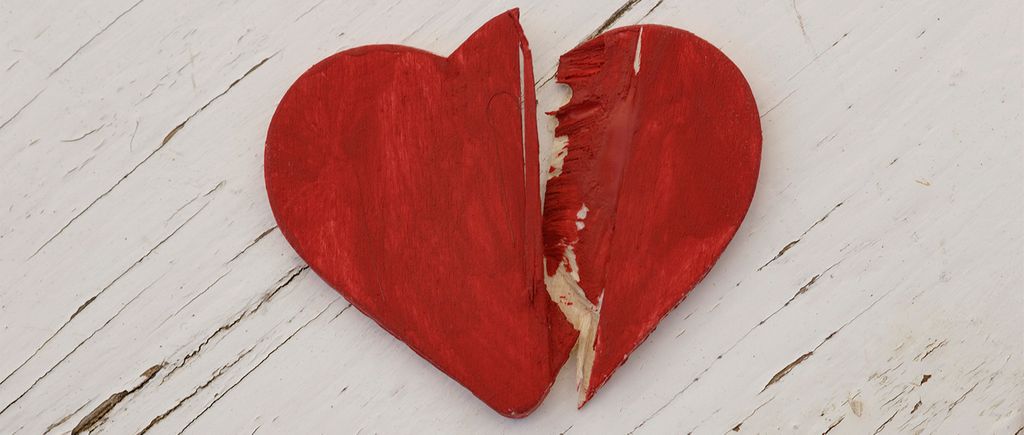Things You Don’T Realize You Do When You’Re Feeling Rejected
Feb 04, 2019 • 10 views
It’s inevitable, isn’t it? Feeling rejected or criticized.
You may currently be feeling rejected by a romantic partner, although I am sure you can also relate to feeling rejected or criticized by a friend, mentor, teacher, employer, family member, parent, etc. We are complex creatures and our emotions, behaviors and thoughts/assumptions are extremely personal tous.Our reality may be a product of our irrational fears, insecurities, and/or ego, yes. However, that doesn’t make our experience of pain any lessreal.

We may go through periods of our life feeling rejected or isolated, as if no one truly takes the time to really give a d*mn. It sucks. I’ve been there. Sometimes, still go there emotionally with my relationships.It’s normal. We are allowed to besensitive beings, you know.We shouldn’t have toapologize for oursensitivities,however,we should be responsiblefor trying to be mindful of our reactions and assumptions. As these can often lead to us pushing our partners away, only intensifying our experience of feeling rejected and alone.
Relationships are a two-way street, my friend. You cannot speed and drive recklessly, while expecting everyone else to abide by the rules. You need to take accountability of theaccidentwithout blame and work toward the greater goodtogether.
The biggest thing that I have learned about my sensitivities, is that there isnothing wrong with them;but rather, me beingunaware of how I was using them to victimize myself,was the problem.When I was feeling rejected or criticized, (which again wasoften), I would get so upset internally that my innate reactions would be to either get aggressive and pushy, demanding a resolution to make the panic of abandonment go away…orI would shut down immediately and become withdrawn and bitter, only fueling myself with loneliness.
In retrospect, I really wanted someone to protectme, yet, if I were to be honest with myself, I wouldn’t let them.All too often, I would think to myself, “no one understands me and I am always going to be alone.” I had developed a chip on my shoulder that was built up from pain and my experience of feeling rejected. I needed to desperately feel validated and accepted, but because of my unprocessed sensitivities and premature reactions, I wasn’t ready to take accountability of whatI could controlto make it better.

What I didn’t understand at the time was how to beself-aware and acknowledging of how my interpretations were causing certain behaviors that were actually pushing people away from me. This only perpetuated my irrational (but very real) fear of being rejected.Without dismissing your experience when you feel rejected or criticized by your partner, just try to take a moment to reflect and ask yourself the following questions to calm yourself down and gain an objective perspective:
1.What am I feeling?(Refrain from going into a narrative here, for example, “I feel likeshe doesn’t have a clue…. ” As “feeling like…”something is not a feeling. Try to really narrow down core emotions, i.e “I feel hurt. I feel betrayed. I feel sad. I feel alone.”)
2.What I am thinking?(This is where your narrative may go. “I feel like she doesn’t have a clue that this bothers me. I try my best and nothing ever seems to satisfy her. I must be the worst boyfriend on the planet.”)
3.How much of what I am thinking is based on my assumptions?(Here is where you try to trick your brain to be objective. “Am I really the worst boyfriend ever? Has she ever really said that? Maybe I haven’t been clear about what I need from her and that is why she keeps dismissing me.Maybe she doesn’t realize I am trying my best becauseI haven’t told her.”)
4.Are my behaviors, thoughts and emotions align or do they completely contradict each other?(i.e. “When I am feeling criticized, I shut down and become very quiet. My energy shifts, as I attempt to ‘get over it’ without her knowing she bothered me. I can see that my withdrawn behavior may actually send her another message, possibly that I am angry at her… which may be making her withdrawn. Or that I really don’t care. Both are false. I can see how my assumptions take over to fuel my insecurities and instead of telling her that she has hurt me, I retract and put my wall up.”
5.How might you better attempt to communicate your experience without blame or reactivity?By using your check ins, it’s always helpful to address the subject by owning your own experience in a de-escalted way, i.e “This may be irrational, but I felt like you were critiquing my attempt at making you dinner again and that made me upset because I am really trying to make you happy. I feel like my attempts are rejected by you.” You can also take accountability for your behavior, i.e. “I realize I should have told you this right when it happened, rather than shutting down and withdrawing for the rest of the evening, as I am sure that didn’t feel very good to you, but I was scared to tell you how I really felt.”
